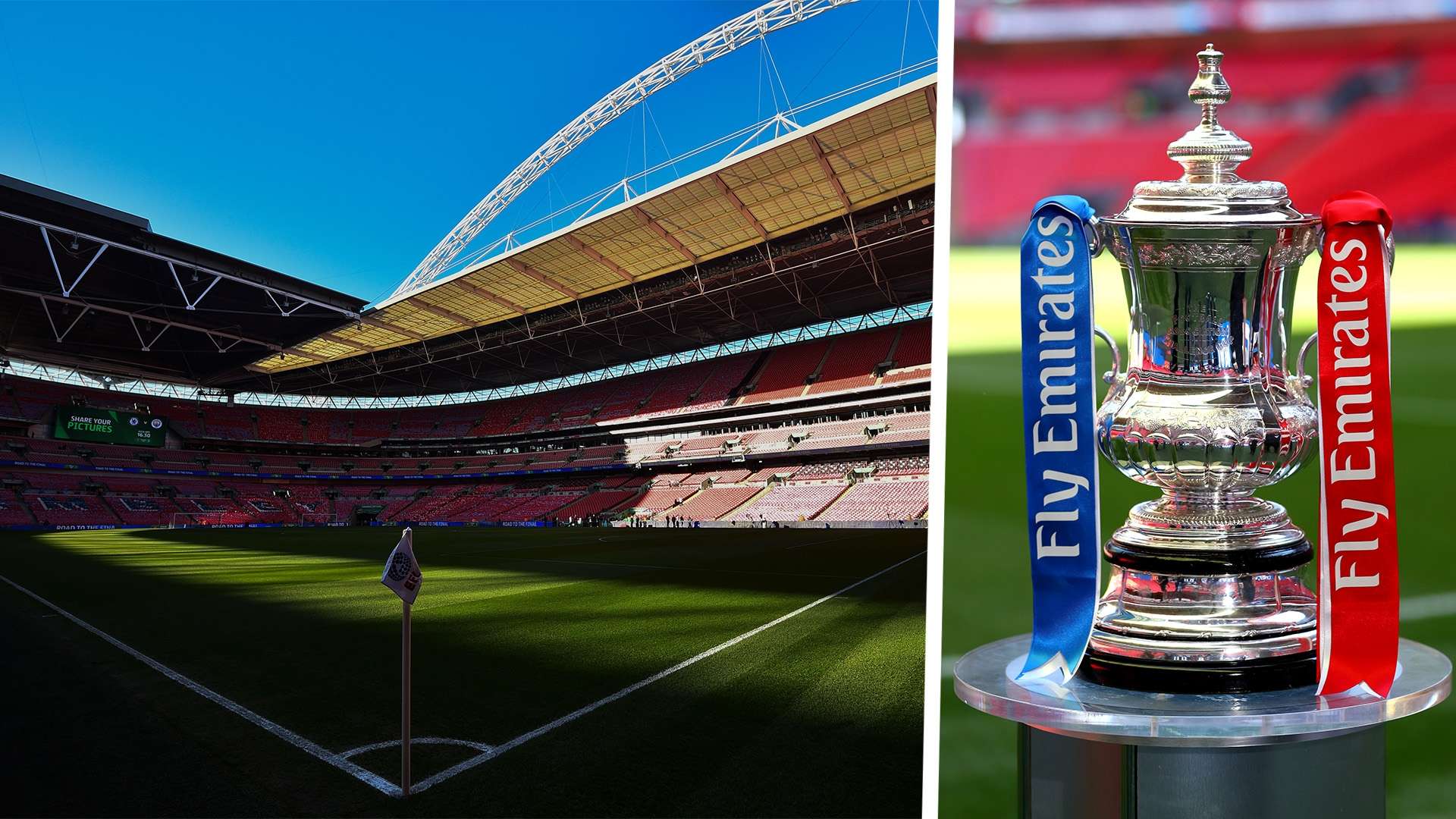In the English football tradition, getting to play at Wembley - the iconic 'Home of Football' - is seen as the pinnacle for many players.
The hallowed venue was the customary battleground for the FA Cup final and other such deciders, as well as England games, so its turf was preserved for a select group.
Indeed, such was the prestige associated with it that Tottenham released a song along with Chas and Dave just for reaching the 1981 final!
However, in recent years it has not been such an exclusive venue. FA Cup semi-finals are now held there too, while Spurs used the ground as their temporary home as a new stadium in north London was built.
Here, GOAL takes a look at why last-four showdowns are played at Wembley and when the change came into effect.Why are the FA Cup semi-finals played at Wembley?
The FA Cup semi-finals have been played at Wembley since the 2007-08 season, following a decision made by the FA in 2003.
It was a move driven chiefly by financial reasons, with the FA keen to ensure that the stadium - which cost roughly £789 million ($1bn) to construct - brought in enough revenue to pay for itself.
Indeed, as the biggest stadium in the United Kingdom with a capacity of 90,000, Wembley stands to earn more from ticket sales than other similar venues.
 Getty Images
Getty ImagesThe first FA Cup semi-finals to be played at the new Wembley were Portsmouth versus West Brom and Cardiff City versus Barnsley in April 2008. Of the teams involved on that occasion, only Portsmouth were playing in the Premier League at the time, with the rest representing the Championship.
Prior to 2008, FA Cup semi-finals were traditionally played at a handful of select venues, including Old Trafford in Manchester, Villa Park in Birmingham and Hillsborough in Sheffield.
Inevitably, the switch to staging all semi-finals at Wembley led to some discontent, but Nick Barron, who was a spokesperson for the FA at the time, said that it was a "financial necessity".
"There will be traditionalists upset by the idea of the semi-finals being at Wembley," Barron said in 2003. "So will some fans of clubs who would have to travel a long way to London and we appreciate that it's not necessarily an ideal situation.
"However, it's a financial necessity in order to pay for the new stadium. And the up side is that not only will more fans be able to watch the games, but they will be doing so in the best stadium in the world."
While Wembley was traditionally preserved for the final before 2008, the old stadium did host a number of semi-finals during the 1990s, the first of which was the 1991 meeting between north London rivals Arsenal and Tottenham.
After over a decade of the semi-final games being played in the capital venue, however, there have been calls to restore the regional element to the FA Cup.
Former Aston Villa chief executive Keith Wyness, for example, argued that playing games at Villa Park was a positive idea.
"Villa Park semi-finals were always very special games and we’d like to see them back here," Wyness told the Mirror in 2018. "The England roadshow was good, and Villa Park as one of the venues would be great.
“It’s also the perfect opportunity for the FA administration to relocate to the Midlands, the heart of the country."
Liverpool vs Manchester City controversy in 2022
Debate regarding the staging of FA Cup semi-finals at Wembley resurfaced in 2022 when Liverpool and Manchester City lined up another heavyweight encounter in domestic knockout competition.
Two giants of England's north west questioned why they, along with a loyal legion of supporters, were being made to make a difficult journey to the capital when alternative venues could be considered.
The Reds and Blues were booked to grace the home of English football on April 16, in the middle of the Easter Bank Holiday weekend.
The Football Association pencilled their showdown in for 3:30pm BST on a Saturday, with the traditional afternoon blackout of television coverage on that particular day of the week being lifted for a special occasion.
Supporters were, however, left facing severe travel disruption due to maintenance works being carried out on road and rail routes.
Calls from Liverpool and City to have the fixture moved to a more suitable location fell on deaf ears, with the FA merely stating that they would put on 100 free buses for travelling fans while also working with National Highways to ensure that "hundreds of miles of unessential roadworks will be put on hold."

